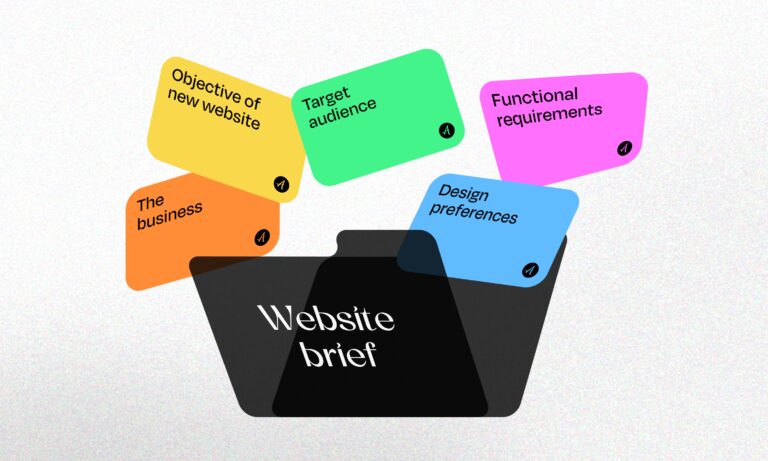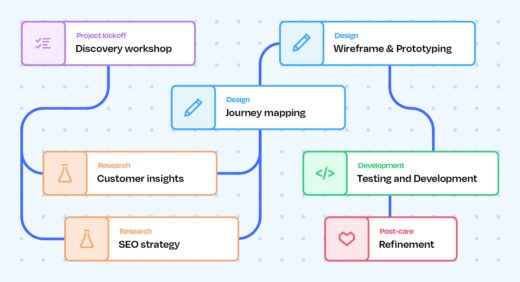How to write a website brief
2.5 min read

Need a new website, but don’t know where to begin when approaching an agency like ours? Well, a brief is the best place to start.
Yes it takes a bit of time upfront, but writing a solid brief will save a lot of back and forth further down the line, will help prospective agencies determine if they are a good fit for you and will help you get a more accurate estimate for timescales and pricing in return. Our handy briefing outline shows you what to include and why, removing the guess work and making it as easy and stress free as possible.
What is a brief?
We might be teaching you the basics here, but it's surprisingly common how often it is for businesses to approach us about a web project without any kind of brief.
A brief is a written document that explains in detail the reasons for undertaking the project, the problems you are trying to solve and what you want to achieve. It also outlines any expected timelines and budgets you wish to work within.
Why is a brief necessary?
A written brief is crucial! It acts as a foundation for the entire project, ensuring clarity, alignment, and transparency from the outset. Without a brief there is no shared understanding of the project’s purpose, goals, and key requirements, all of which are vital for estimating both timelines and budgets and for seeing if the agency is best placed to deliver.
It's also a great way for you, the client, to reflect on what you want out of the project and to get stakeholder buy-in.
What does a good website brief include?
The more information you give upfront the better your agency's response to it will be. These sections will give your agency a really good overview, so try and include them all:
The business
Objectives of the new website
Competitors
Target audience
Design preferences
Functional requirements
Content strategy
Goals for search
Budget and timelines
Maintenance and support
Criteria for success
Remember, your brief is just a foundational document. It's ok if you're not certain about every detail - that's what discovery workshops are for. The purpose is to establish a clear, shared understanding between you and the agency team and is a starting point for collaboration, budgeting and relationship building.

Nikki Taylor
Nikki leads our digital projects to guarantee exceptional quality at every step of project delivery with a background in UX design.
She has specialist knowledge in project management and digital design.
Connect on LinkedIn.
Why investing in the planning phase of your website is the key to its success
5 min read

Why we advocate a phased approach to digital projects
2 min read

Is digital first branding the new normal?
3 min read
